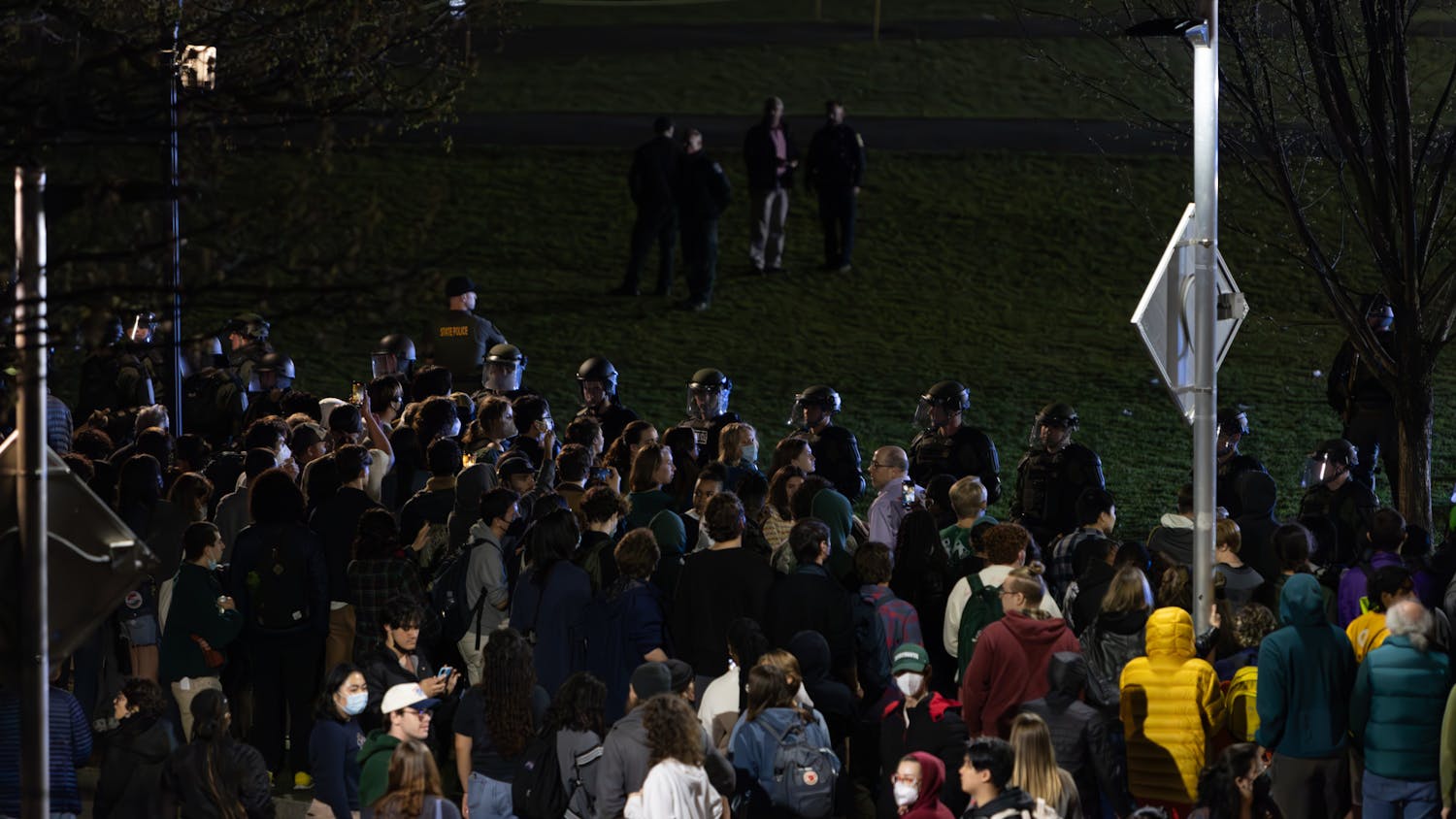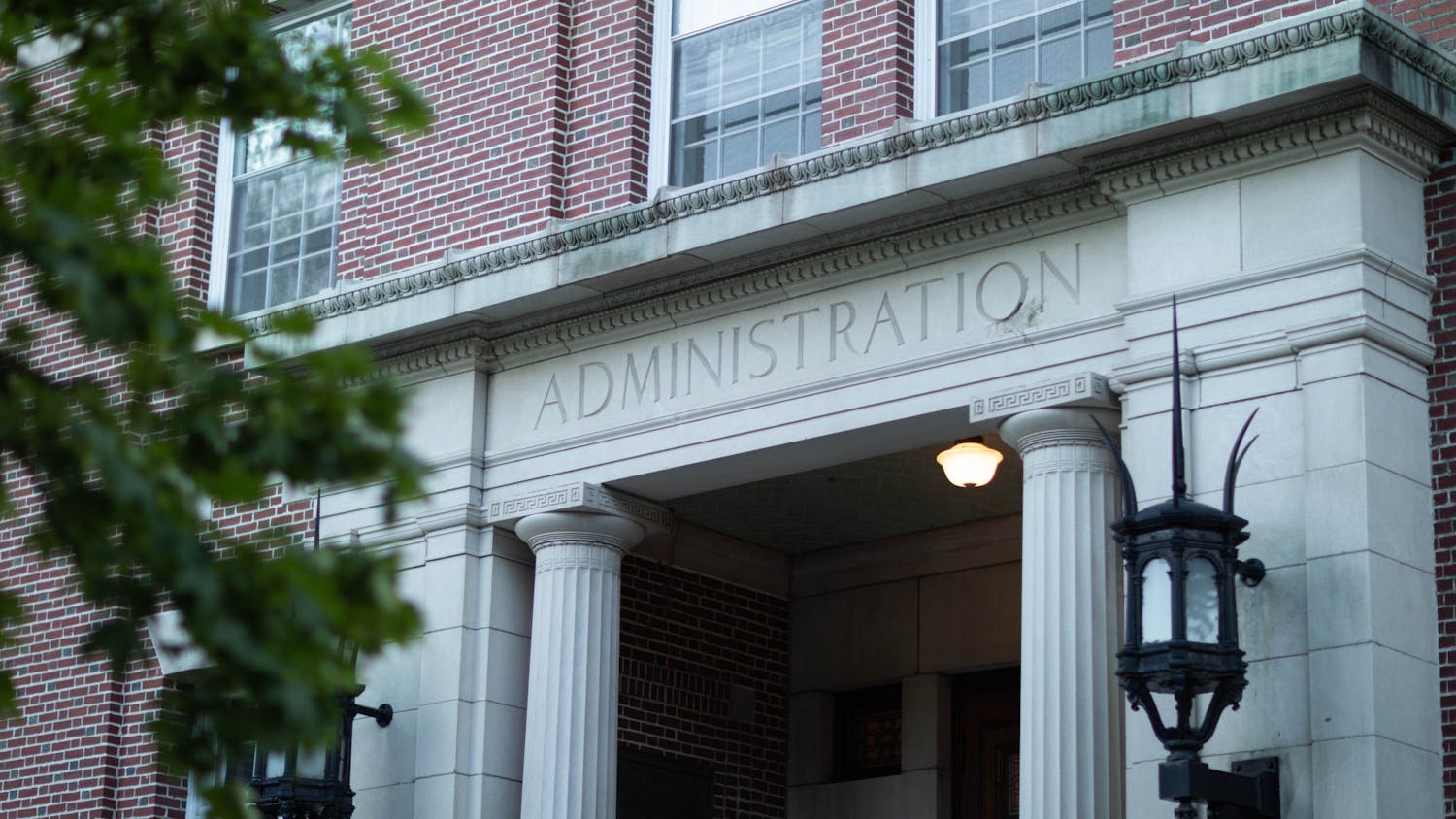The political parties' reluctance to offer ideas on a national scale or to address emerging issues will make the 2002 elections one of the least crucial in recent history, political commentator David Brooks said yesterday in Filene Auditorium.
"This is really the last election of the 20th century," Brooks said. "It is being fought over the ideas of the last century."
The ideas that have risen in importance with many voters and which will shape the future -- such as globalization, global warming and America's new role in the world -- are being ignored by politicians, who are too timid to proclaim a view on a non-established issue, Brooks argued.
Seldom has there been such a rift between conversations that dominate dinner tables, such as unemployment and corporate scandal, and the local issues that have so far outlined this year's races for the U.S. Congress, Brooks said. The political parties are engaged in "trench warfare;" caused by political equilibrium in the electorate and by neither side being willing to risk moving forward with any bold national proposal.
"There is a great political ambivalence. No one has a clue how to create jobs," Brooks said in an interview after his speech. He added that "a nervousness about passion," has made politicians reluctant to offer new ideas.
Sept. 11 did not elevate our political consciousness, as we were told it would following the tragedy. If Sept. 11 hadn't happened, the only difference would be that Bush's approval rating would be about 30 points lower and the Republicans would lose seats during this election, he said in the interview.
In the next 30 years, the chance of some new legislative issue transforming politics is not great, Brooks told the crowd of over 100 people, mostly professors and area residents. "National issues have vanished into a black hole" now that Washington is "a check writing machine, not a place of great new policy decisions."
There will be no congressional realignment other than the Republicans possibly gaining a few seats in the House, predicted Brooks, who writes about politics and foreign affairs for The Atlantic Monthly and The Weekly Standard. Even if the Republicans take the Senate, he added, there will be no great legislative effect.
According to Brooks, many races have already been decided due to gerrymandering, a term used for districts realigned along party lines.
"Politicians pick the voters, the voters don't pick the politicians," Brooks said, noting that there is only one competitive Congressional election in California.
The one issue attracting attention on both a personal and national scale is the possible war with Iraq, according to Brooks, who warned that before engaging Saddam Hussein, the United States must understand what Brooks described as Hussein's ideology of Arab racial superiority.
The conflicts in Iraq's recent history would exhaust most nations, Brooks said, "but for Saddam it is all a part of a highly charged ideological process." The violence, especially against America and Israel is, for Hussein, "cleansing."
This belief differentiates Hussein from other despots, such as North Korea's Kim Jong-Il, who have focused mainly on maintaining rule in their country and not on actively seeking violent conflicts.
Brooks also commented on President George W. Bush, who, like no one before him, "dominates the landscape in Washington." Displaying the sly wit which embroiders much of his commentary, Brooks added, "He doesn't know a lot, but he has incredible self-confidence."
While "Bush has Middle East fever," he is motivated "by sincerity" and believes he is engaged in a noble cause, Brooks suggested.
The president's heart is with the hawks, Brooks said, but it is Bush's custom to listen to the debate between those close to him and then retreat to himself and make up his mind.
Throughout Bush's political career, he has "staked out the extreme position and then settled halfway and declared victory," Brooks said.



